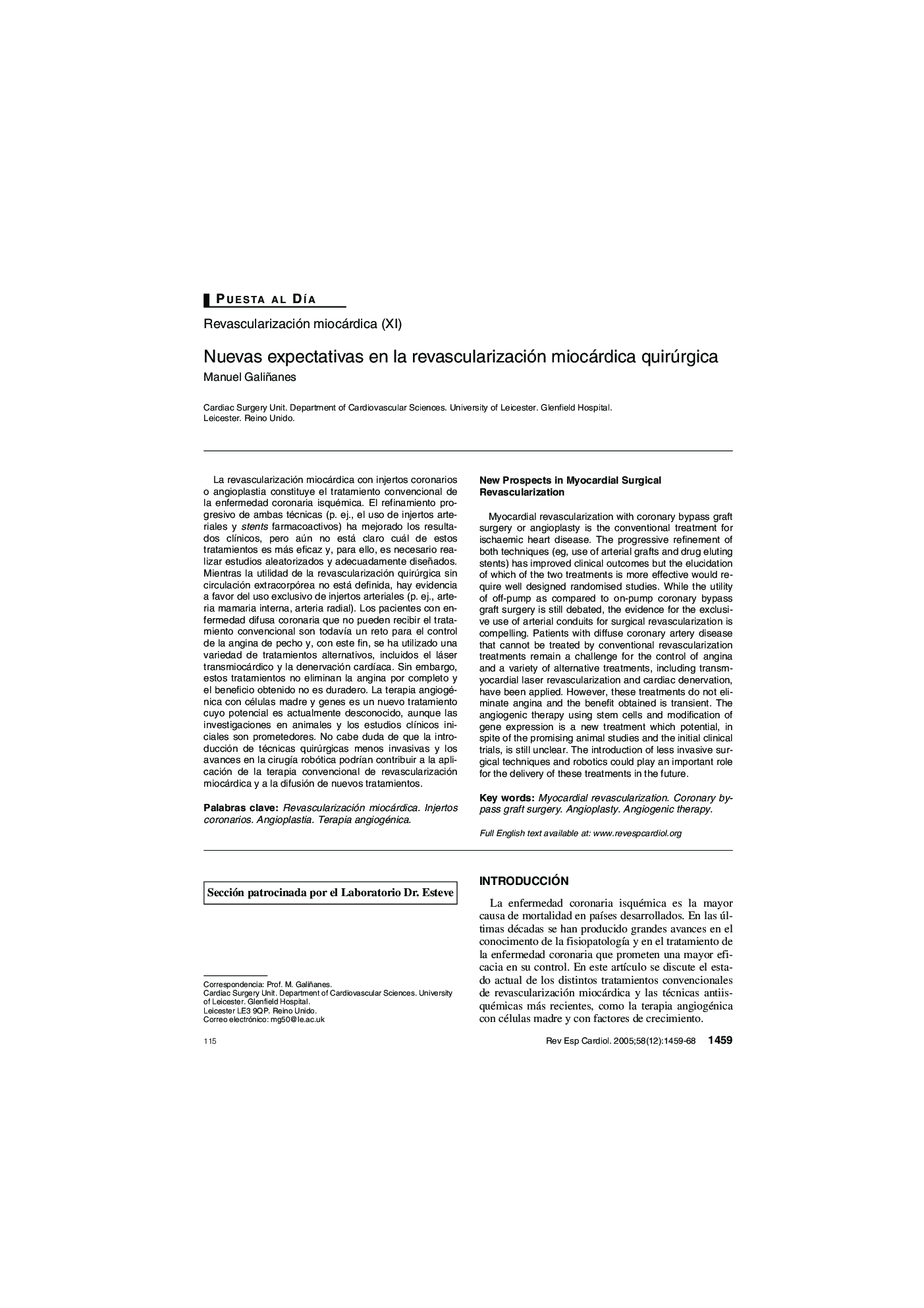| Article ID | Journal | Published Year | Pages | File Type |
|---|---|---|---|---|
| 9180801 | Revista Española de Cardiología | 2005 | 10 Pages |
Abstract
Myocardial revascularization with coronary bypass graft surgery or angioplasty is the conventional treatment for ischaemic heart disease. The progressive refinement of both techniques (eg, use of arterial grafts and drug eluting stents) has improved clinical outcomes but the elucidation of which of the two treatments is more effective would require well designed randomised studies. While the utility of off-pump as compared to on-pump coronary bypass graft surgery is still debated, the evidence for the exclusive use of arterial conduits for surgical revascularization is compelling. Patients with diffuse coronary artery disease that cannot be treated by conventional revascularization treatments remain a challenge for the control of angina and a variety of alternative treatments, including transmyocardial laser revascularization and cardiac denervation, have been applied. However, these treatments do not eliminate angina and the benefit obtained is transient. The angiogenic therapy using stem cells and modification of gene expression is a new treatment which potential, in spite of the promising animal studies and the initial clinical trials, is still unclear. The introduction of less invasive surgical techniques and robotics could play an important role for the delivery of these treatments in the future.
Keywords
Related Topics
Health Sciences
Medicine and Dentistry
Cardiology and Cardiovascular Medicine
Authors
Manuel Galiñanes,
